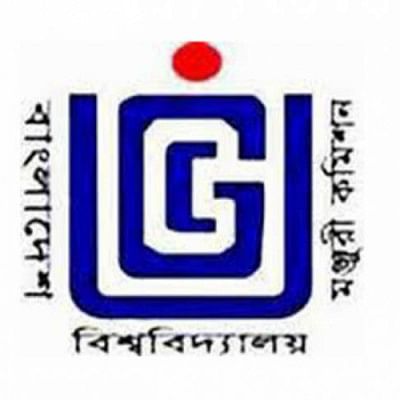Uniform Univ Admission Test: Educationists split over UGC move

Renowned educationists are divided over the University Grants Commission's move to introduce a central entrance test for public universities.
Opposing the move, some academics said a uniform admission test would force the universities to "compromise on quality of students". They insisted that the universities should have the power to choose their students to "uphold their academic speciality".
They also expressed concern that the autonomy of the universities might be affected if the new admission system was introduced.
Educationists supporting the move said a central admission test would reduce hassles of admission seekers and their guardians.
However, educationists from both the groups said introducing such an admission test would be a daunting task and there should be a mechanism to stop any irregularities, including leak of question papers.
The UGC is all set to introduce the central admission test this year to reduce the hassles of admission seekers.
Speaking to reporters after holding a meeting with 12 VCs if public universities on Wednesday, UGC Chairman Prof Kazi Shahidullah said, "We have unanimously decided that a central admission test will be held this year to enroll students at public universities."
Prof Emeritus of Dhaka University Serajul Islam Choudhury said a uniform entrance test is needed to reduce the hassle of admission seekers who now take several tests within a short time.
"They need to travel to different cities and towns which is a waste of time and money. Considering the hassles, holding a uniform admission test is logical."
He, however, said there would be some problems with the new system. "We don't have any institution to organise such a uniform admission test. Results of the test will not be reliable."
The DU teacher said managing the uniform test would be another challenge. "How will the exam be managed? We are hearing that all the public universities will manage the exam in turn. How will the smaller universities manage the test? Are they capable of it?"
He said every public university is autonomous and there are two important aspects of their autonomy -- appointment of teachers and enrollment of students. "The universities should have the jurisdictions. If anyone force any decision on the universities in this regard, it would not be consistent with their autonomy."
Former UGC chair Prof AK Azad Chowdhury said there were some positives and negatives to the new admission system.
He said the admission seekers would be benefitted as the new system would reduce their hassles.
Prof Azad said world class foreign universities generally choose their own students. The local universities, who want to reach the level of excellence, should have the jurisdiction to pick their own students, he added.
He claimed that Oxford and Harvard universities enroll students based on their scores in different tests, including SAT, GRE. Besides, they also have entrance exams. Stanford University takes students through an exam.
The former DU VC also said Jawaharlal Nehru University and Delhi University have control on their own admission system while the institutes of technologies follow a central entrance test.
Another former UGC chairman Prof Nazrul Islam said a uniform entrance test was a positive step. "It will reduce hassles of students moving from one university to another to get admitted."
"Holding a centralised admission test will not be easy. But it would be great if we could arrange it successfully. It will be difficult to determine how the method will work and how the different departments will pick their students. But I hope the authorities will address all these issues."
He said all public universities enjoy autonomy. "It's not fully correct that quality of education at large universities, run under the 1973 ordinance, are far better than in other public universities."
Former DU professor Syed Manzoorul Islam said arranging a unified admission test is a good move and all the preparations should be made properly.
He recommended holding a dialogue with all stakeholders, including the admission seekers and those favouring and opposing the initiative, to discuss the matter.
"We have to reach a consensus on the issue after hearing all the arguments from the stakeholders. It's not a matter of imposing something on somebody."
Manzoorul said introducing such a test would be a daunting task. "If we don't make proper preparations, we might have to regret the decision later."
Immediate past UGC chair Prof Abdul Mannan refused to make any comment on the issue.
UGC Chairman Prof Kazi Shahidullah said there was nothing to be worried about the autonomy of any public university.
"The universities will join the system after holding discussions with the respective academic councils and other bodies. So their autonomy will not be an issue," he told The Daily Star yesterday.
Shahidullah said there would be three entrance exams -- one each for science, humanities, and commerce students -- based on their HSC syllabus.
"Each exam can carry up to 100 marks," he said.
On January 23, the UGC announced that it would hold a uniform admission test for the 2020-2021 academic year.
The country's 39 public universities enroll around 65,000 students every year through separate admission tests.
Last year, some 9.88 lakh students passed the Higher Secondary Certificate and its equivalent exams under 10 education issue.

 For all latest news, follow The Daily Star's Google News channel.
For all latest news, follow The Daily Star's Google News channel. 



Comments